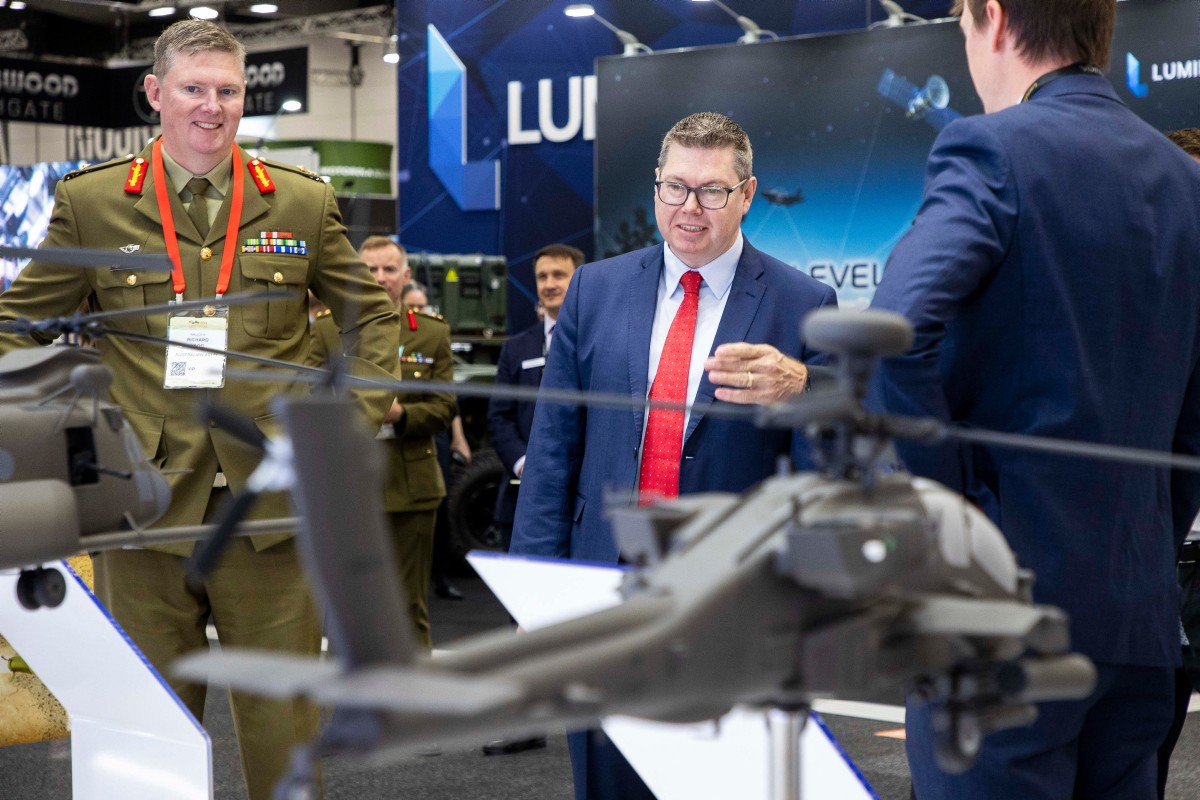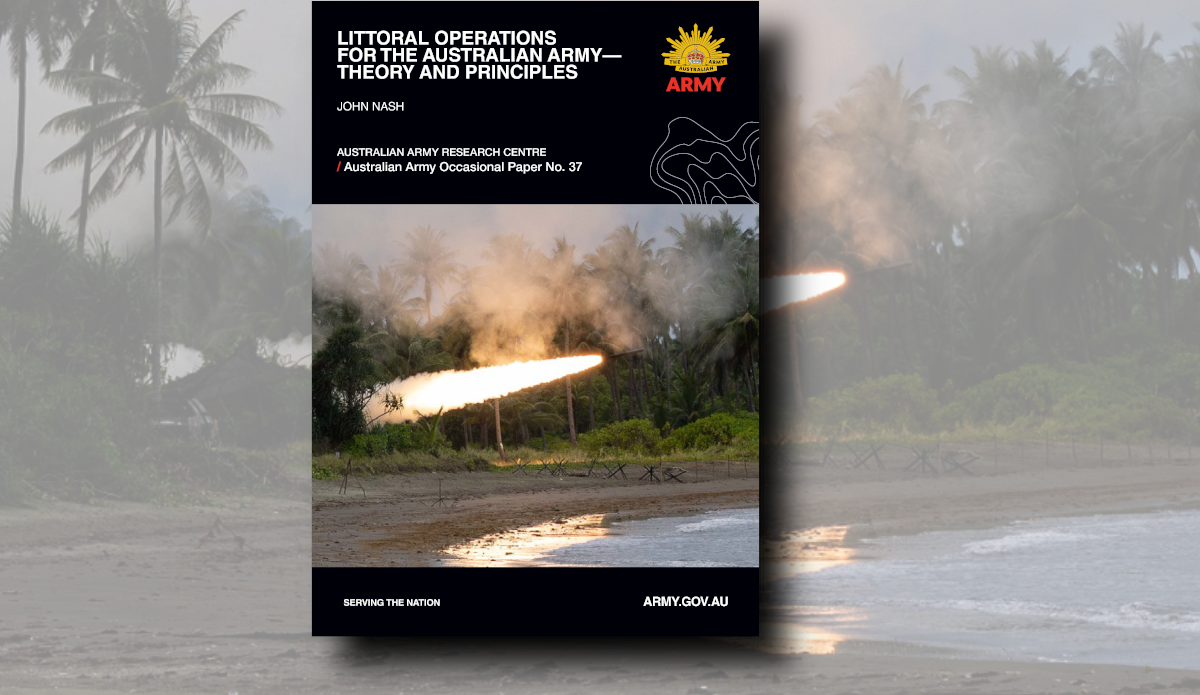In prefacing his classic work on military logistics Pure Logistics, United States Marine Corps officer Colonel George C Thorpe declared that ‘the conclusion is irresistible that the military themselves know next to nothing about logistics’. As a marine infantryman teaching at the US Naval College in 1917, Thorpe had little professional compulsion or explicit need to write on logistics. However, personal experiences of American brush wars and observations made of the expeditionary war being fought on the European continent at the time gave him a reason to propose an approach to military logistics that he felt was lacking. He sought to develop a narrative that explained military logistics, in the context of reorganising military power, to define the way in which it would be considered in the future. Now, with the benefits of 20 years of continuous operations, it is time that the Australian Army does the same.
The Australian Army has good reason to view logistics through new perspectives, at a time where military power is being reorganised to suit potential future requirements. From the implementation of Plan Beersheba to addressing the requirements of a Maritime Strategy through Force Structure Review and Army’s own amphibious tactical concepts, the pace of organisational change has been as frenetic as it might be necessary. Complimented with predictions of the changing characteristics of warfare, new operational concepts are shaping the way in which Army will fight in the future. However, Army has yet to be prescriptive as what it requires from its logistics; to outline an intent that defines its logistic framework for the next stage of its evolution.
Perhaps we know more about logistics than Thorpe controversially proclaimed of his contemporaries, but it is a challenge to find consistency amongst the many concepts that purport to establish principles for Army logistics. Ideas appear in concepts such as the Forces Command Combat Service Support Concept of Operations, a concept that is currently guiding change in the logistic force structures of Army. Such concepts are foundational, as is doctrine, and are therefore highly important. However, as logistics is subjective, meaning it is relative to time, place and purpose, what they promote will not always apply in every circumstance. And while they may do their best to unify with other aspects of Army’s modernisation, such as the development of joint, expeditionary, amphibious capability, their ideas are bound by methodologies that limit their applicability to a holistic vision of Army, or joint, logistics. As new capabilities are introduced across Army such as vehicles introduced under Land 121, or future doctrine and tactics, techniques and procedures are written, it seems self-evident then that general logistics principles to guide development will be required.
A future logistic vision that ensures effective military power must seek interdependency between Army’s independent efforts, and must emphasise the use of logistics in the application of strategic land power. Introducing yet another concept in isolation is not likely to achieve this outcome. The fragmented and disparate ideas of Army’s logisticians, some forty percent of the wider Army, have always proven to create a battlefield out of analysis and discussion. Being defined by organisational divides based on corps, trades and a myopia brought about by virtue of the ‘level’ of logistics at which one has primarily served their logistic career, there is very little consensus in Army logistics. Even more opinions exist outside of Army’s logistics community, most importantly amongst Army’s commanders, each of whom has their own impressions of how logistics should contribute, alongside strategy and tactics, to Army’s force development.
In a void of consensus, a narrative for Army logistics enables the preparation of effective military power through enunciating a clear intent and professional vision. Although commonly seen as a tool to describe military or national grand strategy, narratives serve a number of purposes. Narratives provide a vision that is tailored to shape decision making, to link multiple activities and military planning with common themes and ideas, and to influence the thinking of different audiences. They are not grand, unifying theories, but serve pragmatic purposes which address contemporary concerns. It is for these very reasons that the idea of a narrative for Army logistics is of real utility. We have only to look at the current US Army to see how a logistic narrative might work as it seeks to inculcate an ‘expeditionary mindset’; a vision that orients the many aspects of US Army logistics to the perceived operational challenges of the expeditionary force of the future.
This is not to say that the development of a narrative would be an easy task; if consensus is already difficult to achieve in Army, to create an overarching and broadly acceptable vision for Army logistics is in itself tremendously difficult. Firstly, Army’s own narratives and visions are at times unclear or uncertain, making it a challenge for its logisticians to come to a conclusion; one need only examine the debate over amphibious capability to confirm this. Furthermore, with increased emphasis on the strategic centre of Defence, some might think this task is a problem for Joint strategic agencies that have ever increasing responsibilities for overseeing a nominally Defence logistic framework. But there can be no other agency, organisation or Service better suited to addressing Army’s unique challenges and needs than Army itself. This is not to say that Army’s logisticians exclude the absolute importance of the joint domain to their own operational performance. But if Army is to remain responsible for the provision of strategic land power, it must also be responsible for defining a vision for all factors which directly contribute to its combat potential in the domain of war it is ultimately responsible for mastering.
Army understands the relevance of logistics in its contributions to Australia’s military power. However, Army cannot look to the future logistics ideas without bounding its logistics development by an unambiguous intent and vision that it currently lacks. Perhaps the next iteration of the ‘Future Land Operating Concept’ and its supporting concepts will do just that; but I can’t help but feel it won’t be enough. Army’s logistician leaders, enabled, informed and guided by others, are the ones that must shoulder the responsibility of developing and articulating an acceptable and useful narrative. But if they do, it is they who will benefit from a strong intellectual centre that will be instrumental to the modernisation and development of sustainable strategic land power in the future.



